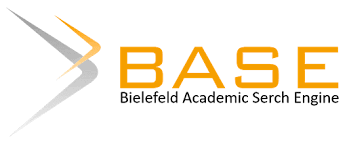PELATIHAN BAHASA INDONESIA BERBASIS PRAGMATIK UNTUK MENINGKATKAN EFEKTIVITAS KOMUNIKASI TRANSAKSIONAL DI PASAR BADUNG.
DOI:
https://doi.org/10.59819/sewagati.v4i1.4858Keywords:
Language Training, Pragmatics, Transactional Communication, traditional marketAbstract
Effective transactional communication is a key factor in the success of market interactions, particularly in traditional markets such as Pasar Badung, Denpasar. However, various linguistic and pragmatic challenges are still encountered in the speech acts of traders, leading to unclear messages, misunderstandings, and reduced quality of service to customers. This community service project aims to enhance traders’ pragmatic competence in using the Indonesian language through contextually designed training tailored to real market transaction situations. The method employed is participatory training using a pragmatics-based approach, covering speech act analysis, implicature, and politeness in language use. The program was conducted in three stages: needs assessment, training implementation, and evaluation of the impact on communicative behavior. The training results indicate an improvement in participants’ understanding and application of more effective and polite communication strategies during commercial interactions. The conclusion of this activity highlights that pragmatic training positively contributes to the improvement of traders’ communicative literacy, while also fostering more productive and human-centered transactional environments at Pasar Badung..
Downloads
References
Budiwati, T. R. (2017). Kesantunan berbahasa mahasiswa dalam berinteraksi dengan dosen di Universitas Ahmad Dahlan: analisis pragmatik. The 5TH Flurecol Proceeding, UAD, Yogyakarta, 557-571.
Cleopatra, A. R., & Dalimunthe, S. F. (2016). Kesantunan Berbahasa dalam Interaksi Jual Beli di Pasar Pekan Sunggal Kecamatan Medan Sunggal Kabupaten Deli Serdang (Kajian Pragmatik). Asas: Jurnal Sastra, 5(1), 57258.
Devi, R. P. I., & Utomo, A. P. Y. (2021). Tindak tutur ilokusi pada interaksi jual beli di pasar tradisional Bandarjo Ungaran dalam kajian pragmatik. Riksa Bahasa: Jurnal Bahasa, Sastra, dan Pembelajarannya, 7(2), 185-196.
Ertinawati, Y., & Nurjamilah, A. S. (2020). Analisis variasi kata sapaan antara penjual dan pembeli di pasar induk cikurubuk Tasikmalaya ditinjau dari perspektif pragmatik. LITERASI: Jurnal Ilmiah Pendidikan Bahasa, Sastra Indonesia dan Daerah, 10(2), 126-139.
Fadli, I., & Kasmawati, K. (2020). Maksim Kerja Sama Berbahasa Model Grice dalam Peristiwa Tutur Di Pasar Tramo Kabupaten Maros: Kajian Pragmatik. Jurnal Idiomatik: Jurnal Pendidikan Bahasa dan Sastra Indonesia, 3(2), 67-72.
Rahardi, K., Setyaningsih, Y., & Dewi, R. P. (2005). Pragmatik. Jakarta: Erlangga.
Ridwan, M. H., & Riza, M. A. (2021). Analisis Tindak Tutur Antara Penjual Dan Pembeli Di Pasar Sumberayu Muncar Banyuwangi (Kajian Pragmatik) Tahun 2020. Jurnal PENEROKA: Kajian Ilmu Pendidikan Bahasa Dan Sastra Indonesia, 1(01), 1-23.
Rohmadi, M. (2014). Kajian pragmatik percakapan guru dan siswa dalam pembelajaran bahasa Indonesia. Paedagogia, 17(1), 53-61.
Sari, S., Fahlevi, D. F., & Gunawan, S. A. (2022). Implikatur Percakapan pada Transaksi Jual Beli di Pasar Pagi Samarinda: Kajian Pragmatik. Jurnal Etnolingual, 6(2), 90-111.
Situmeang, S. (2022). Tindak Tutur Deklarasi pada Pedagang di Pasar Pinangsori Sebuah Tinjauan Pragmatik. Jurnal Basasasindo, 2(1), 30-40.
Susanto, R. (2021). Analisis Tuturan Negosiasi Penjual-Pembeli di Pasar Tradisional di Kota Kolaka: Analisis Pragmatik (Doctoral dissertation, Universitas Hasanuddin).
Yuliana, R., Rohmadi, M., & Suhita, R. (2013). Daya pragmatik tindak tutur guru dalam pembelajaran bahasa Indonesia pada siswa sekolah menengah pertama. Basastra, 2(1).
Downloads
Published
Issue
Section
License
Copyright (c) 2025 Ni Made Rinayanthi

This work is licensed under a Creative Commons Attribution-ShareAlike 4.0 International License.
Authors who publish with the Jurnal Sewagti agree to the following terms:
1. Authors retain copyright and grant the journal the right of first publication with the work simultaneously licensed under a Creative Commons Attribution License (CC BY-SA 4.0) that allows others to share the work with an acknowledgment of the work's authorship and initial publication in this journal.
2. Authors are able to enter into separate, additional contractual arrangements for the non-exclusive distribution of the journal's published version of the work (e.g., post it to an institutional repository or publish it in a book), with an acknowledgment of its initial publication in this journal.
3. Authors are permitted and encouraged to post their work online (e.g., in institutional repositories or on their website) prior to and during the submission process, as it can lead to productive exchanges, as well as earlier and greater citation of published work. (See The Effect of Open Access) .




















